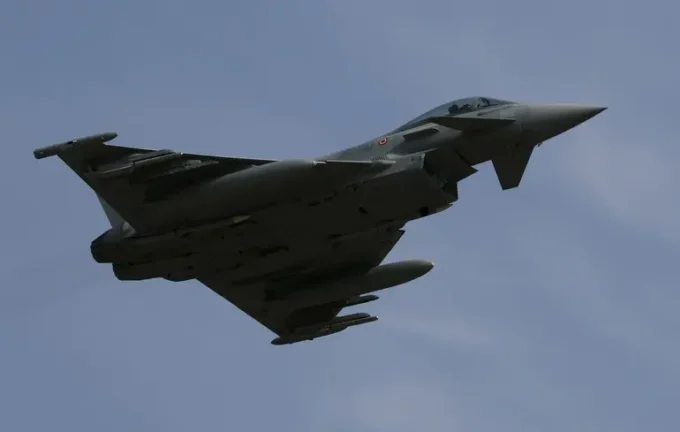UK halts Eurofighter Typhoon production amid declining orders and concerns over losing critical aerospace skills

The United Kingdom — a leading nation in military aviation — has unexpectedly suspended mass production of the Eurofighter Typhoon fighter jets. The decision follows a sharp decline in new orders, raising concerns about the country's ability to preserve essential skills within its aerospace industry. For over a decade, all Typhoon aircraft were assembled at BAE Systems’ modern facility in Warton, Lancashire. However, today, the final assembly line is essentially inactive — the last aircraft, built for Qatar under a multi-billion-pound contract signed in 2017, is nearly completed but has not yet been shipped. A union representative at the plant confirmed that only one jet remains in the hangar, waiting for final parts and painting. The main manufacturing operations are now halted, with no workers actively assembling aircraft. The UK government has not placed new orders for Typhoons since 2009, and export deals with Saudi Arabia and Qatar remain unfinalized. Experts warn that if new orders do not materialize soon, the country risks losing vital industrial capabilities necessary for developing next-generation fighters. The Typhoon is built through a European consortium involving BAE Systems, Airbus, and Leonardo, each manufacturing specific components for each aircraft, while overseeing final assembly across participating nations. Currently, BAE continues to produce forward fuselages for foreign-ordered Typhoons, which are then shipped to Europe for final assembly. The recent British government decision to acquire American F-35 fighters instead of committing to new Typhoon orders has sparked renewed debates over national defense priorities. Although existing Typhoons are slated for upgrades, such as new radar installations, the UK remains the only consortium member not to have ordered the latest version. Defense Secretary Ben Wallace recently declined to comment on the prospects of new orders but emphasized that the strategic defense review reaffirmed the importance of the Typhoon and its modernization. Wallace also mentioned that the UK plans to purchase up to 27 F-35 jets by the end of the decade, including 15 F-35B variants capable of operating from aircraft carriers and 12 F-35A models that can carry tactical nuclear weapons. Industry insiders report ongoing negotiations to secure export contracts with Qatar, Saudi Arabia, and Turkey. Aerospace editor Tim Robinson of the Royal Aeronautical Society notes that the pause in continuous fighter aircraft production in the UK is likely temporary but cautions that prolonged suspension could pose risks to maintaining critical skills and experience needed for next-generation fighters. BAE has assured that it possesses the expertise to adapt to changing program requirements and preserve specialized skills. They also express confidence that sustained interest from current and potential clients will ensure Typhoon production continues through the next decade. The UK Ministry of Defense states that Typhoon remains the backbone of the country’s air defense at least until the 2040s, with future investments depending on the Defense Investment Plan to be published later this year.

